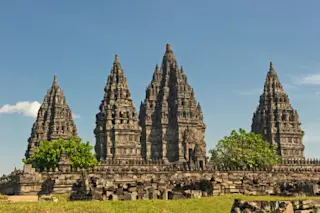Societies grow through slow, incremental change, but their collapse can be sudden and dramatic. That is one intriguing lesson from a recent study of diverse cultures across Southeast Asia and the Pacific Islands by University College London anthropologist Tom Currie. The research aims to settle a major anthropological debate over whether political systems develop the same way regardless of culture; the results suggest that some aspects of political development are in fact universal.
To study societal evolution, Currie and his colleagues turned to the tools of evolutionary biology. First they used linguistic similarities to create an evolutionary tree showing the relationships among 84 contemporary cultures, including the complex Balinese society of Indonesia and the indigenous Iban people of Borneo. “It’s essentially the same way biologists use genetics to see how species are related,” he says. They then described each society’s political structure on a spectrum from loosely organized tribes up ...















